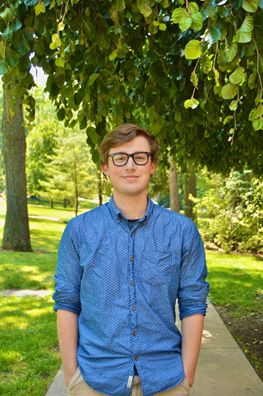To Liam Magargal ’21, receiving a 2023 National Defense Science and Engineering Graduate (NDSEG) Fellowship from the U.S. Department of Defense (DOD) was confirmation that all the time and effort he’d spent honing his skills as a technical writer had finally paid off.
“I’ve been applying for fellowships for three years now,” says Magargal, a PhD student in mechanical engineering. “It was something my advisor always stressed was important because it forces you to get better at articulating and pitching—and ultimately funding—your research. And now I’ve got the next three years of my PhD fully supported.”
The NDSEG Fellowship was established in 1989 with the goal of increasing the number of U.S. citizens with doctoral degrees in fields relevant to the DOD. Magargal—who is advised by Justin Jaworski, an associate professor of mechanical engineering and mechanics—researches model reduction in computational fluid dynamics.
“These are complex interactions to model,” he says. “Computationally, they’re very expensive—they require hundreds and hundreds of processors to run the computations, and can generate a huge amount of information that needs to be stored, which takes up a lot of random access memory, or RAM.”
Such models also require extensive time and energy to generate.
“It’s not very efficient to have to wait three months for one study to be finished,” he says.
Magargal is exploring a numerical model to streamline the process of creating high-fidelity simulations by as much as 97 percent. Such an improvement to the state of the art could benefit anyone doing physics modeling of fluids, from the mechanical engineer who wants to compute the drag force on bridge supports to the Air Force engineer studying supersonic flow effects on aircraft.
“The other thing that’s neat about all of this is that it could, in theory, enable real-time rendering,” he says. “So if you have a VR headset and you have to compute these physics in real time, you’re able to get feedback immediately. Imagine if you’re training a pilot—you could use a method like this to train them in a low-cost fashion.”
Magargal first got hooked on research as an undergraduate during the pandemic. He was looking for something he could do remotely during the summer after a planned internship was canceled. He connected with Jaworski and Dr. Steven Rodriguez from the U.S. Naval Research Laboratory (NRL), and found that computational research checked a lot of boxes for him. His interests were further realized during an internship at NRL under the direction of Rodriguez.
“It’s math intensive, it involves physics and computer science and machine learning, and I found that I really enjoyed it,” he says. “I wasn’t planning on grad school at the time, but research ended up being something I was excited about, and I wanted to stick with it.”
Sticking with it also meant learning to better communicate it. And Magargal is grateful for the many hours and many drafts he, Jaworski, and Dr. Yvonne Lee, assistant director of Lehigh’s Graduate Writers’ Studio, worked through together that ultimately helped him land the prestigious NDSEG Fellowship, which was awarded to a total of 165 individuals at 68 institutions nationwide in 2023.
“There was just constant back and forth,” he says. “Sometimes it’s rough to get the edits back, but in the end, that kind of feedback just makes you better. And clearly we did something right because I was able to obtain this funding, and that is really exciting.”

